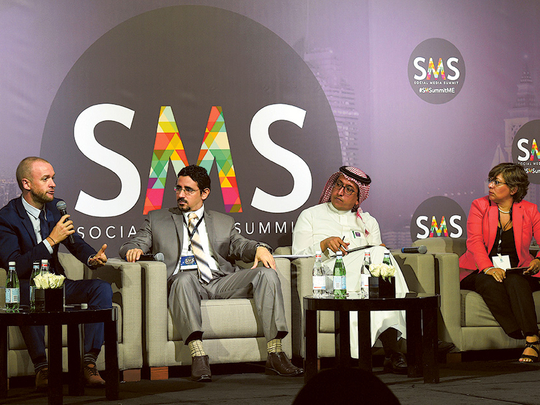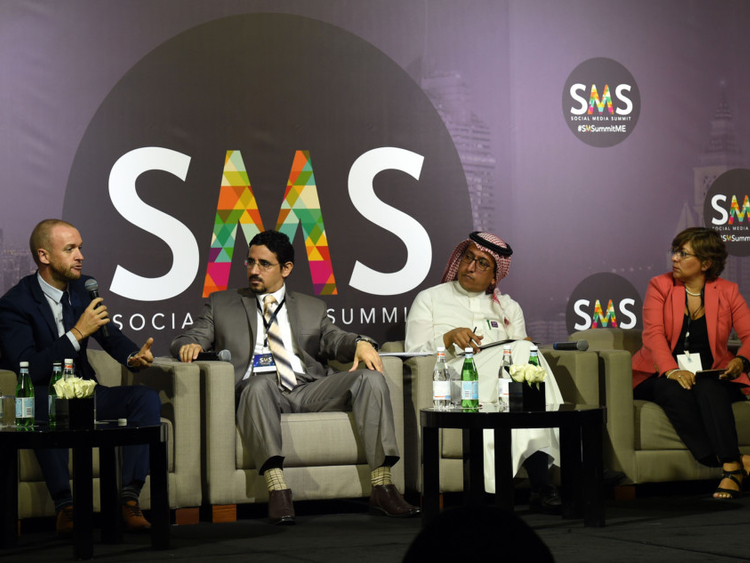
Dubai: Media publications have to find a balance between maintaining their credibility and using information from citizen journalists on social media channels, media experts said at the first panel discussion of the Social Media Summit.
The summit’s third edition took place on April 27 at Armani Hotel Dubai.
“News organisations have to choose between speed and credibility, especially when it comes to breaking news,” said Yasser Al Misfer, deputy general manager of projects at Al Arabiya News channel.
With Twitter reports showing 6,000 tweets a second, and 500 million tweets a day “it is not an easy task to find the source of specific information on social media”, he said.
Hiring trusted sources among citizen journalists to help with verifying trending information and breaking news is necessary, explained Al Misfer.
“You can’t have reporters everywhere, all the time. Each outlet should have trusted sources they can rely on, and should go with their gut feeling when it comes to the sources of trending news on social media,” he said.
Video to dominate social media?
Predicting video reporting to be most dominant on social media in the near future, Al Misfer referred to the new generation, “the millennials”, as social media users who want information to be simplified and presented visually and instantly.
Carolina Faraj, vice-president, Arabic services at CNN, referred to three tools — mobile, video, and social media — as trends that traditional media needs to adopt in order to continue and grow.
“The number of social media followers has become a part of the identity of a media outlet. We must not forget that 60 per cent of the Arab population is below 30 years old,” said Faraj.
She explained that social media has affected the sourcing of information and style of writing in publications, and has created another layer to news content that is only curated for such platforms. Media agencies now communicate with their own local communities through their pages on social media, changing what used to be ‘one source of information to many, to many sources of information to many’,” Faraj said.
However, posting information on social media is not enough for users. “They need to be included in the discussion and debate on every social media platform,” she said.
Journalism ethics
While the process of verifying information on social media remains a challenge to many journalists, Faraj said she believes it is no longer the role of a reporter alone to ensure the information is credible. It is the responsibility of the reporter and legal and technical team of an organisation as well, she added.
“Citizen journalists can’t be called sources, they can be called possible sources, as journalists should verify any news or information through at least two sources before publishing it,” she said.
Another speaker, Richard Fitzgerald, social media strategist at Lovin Dubai, also pointed out the changing landscape of media, and the need for organisations to adapt to social media through new strategies. He explained that journalists need to realise that social media is a new form of media that needs time to evolve, without jeopardising their principles and ethics.
“Each organisation needs to create a social media and citizen journalism strategy in order to evolve,” he said.
Fitzgerald highlighted the need for caution when using information on social media as some citizen journalists may have their own agenda online, such as receiving a high number of likes, or building an audience.










